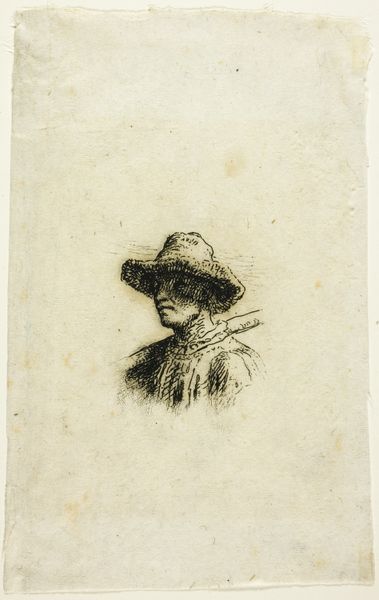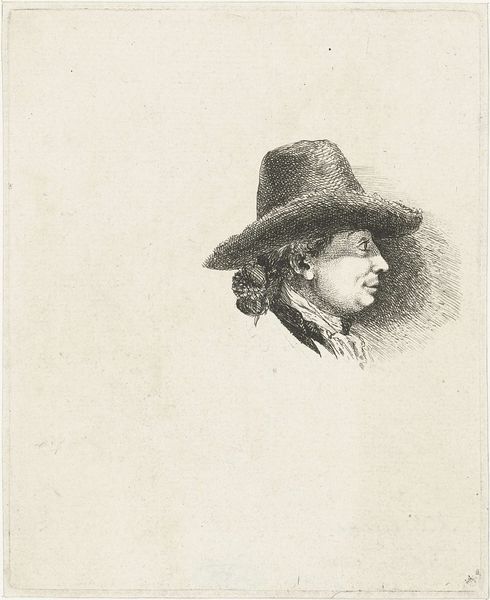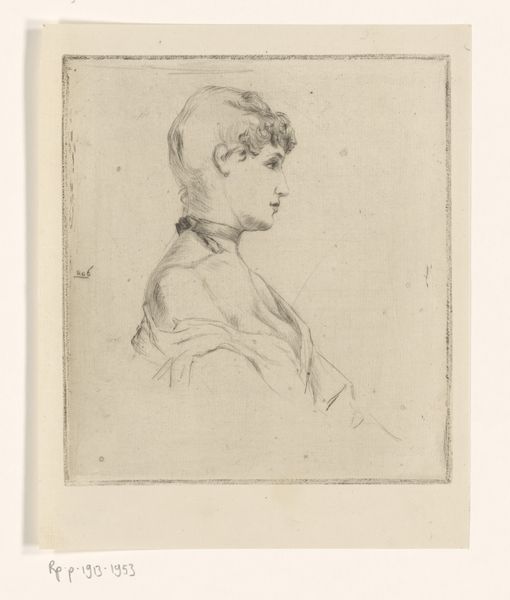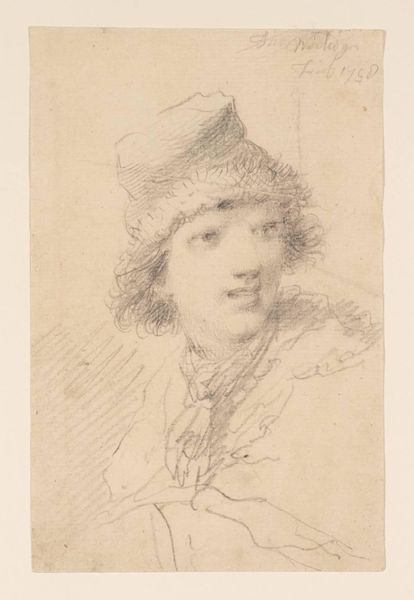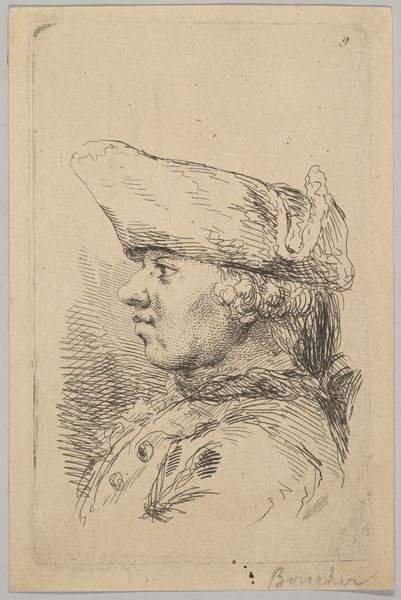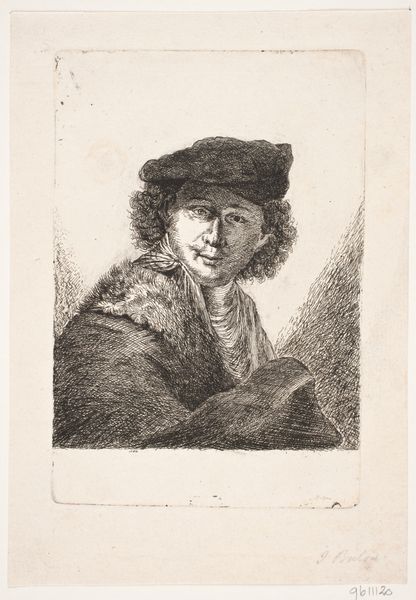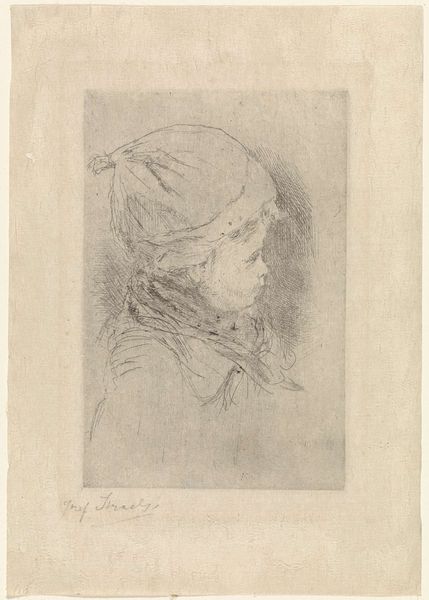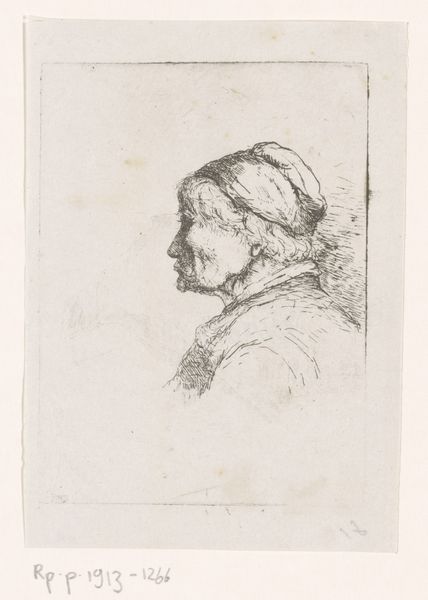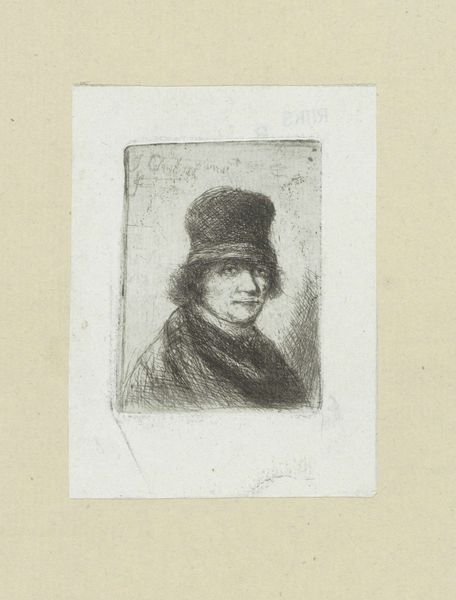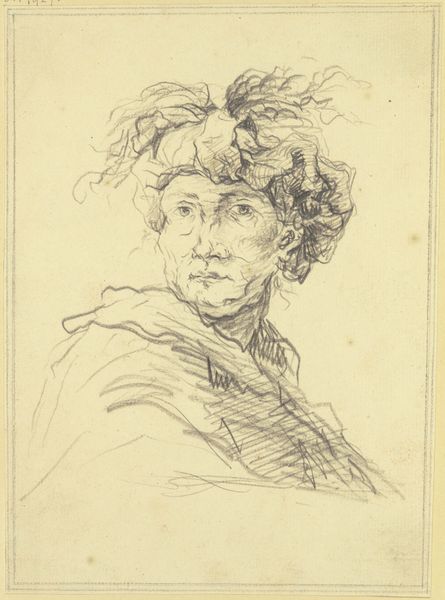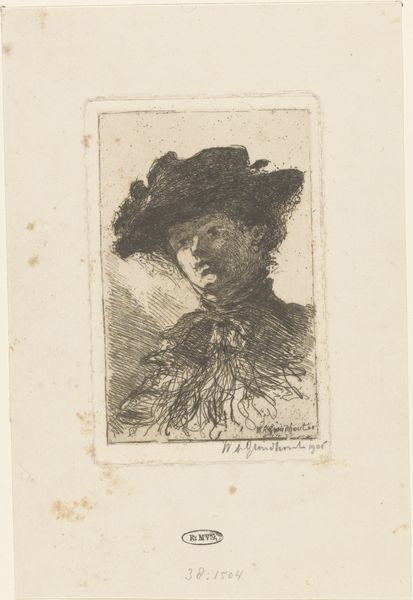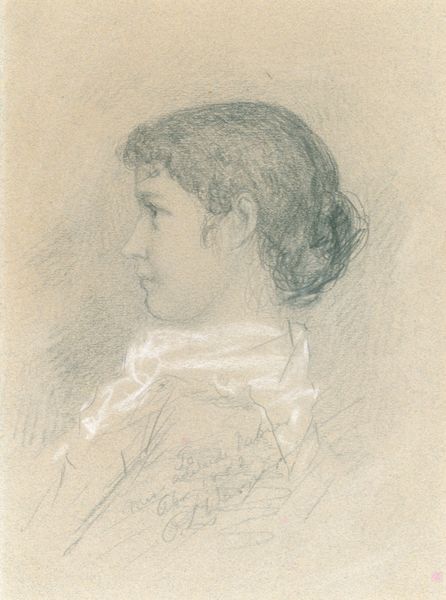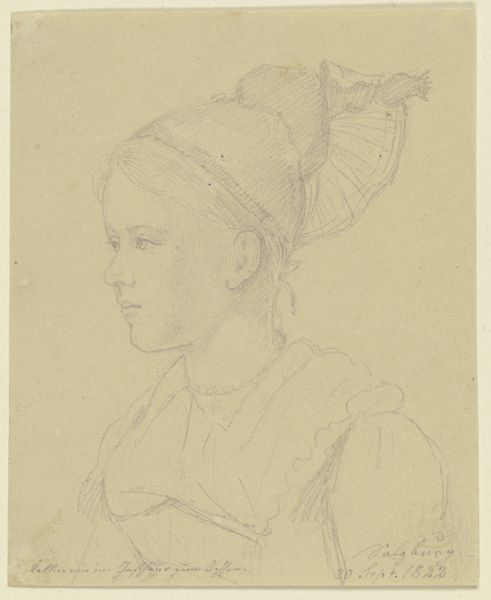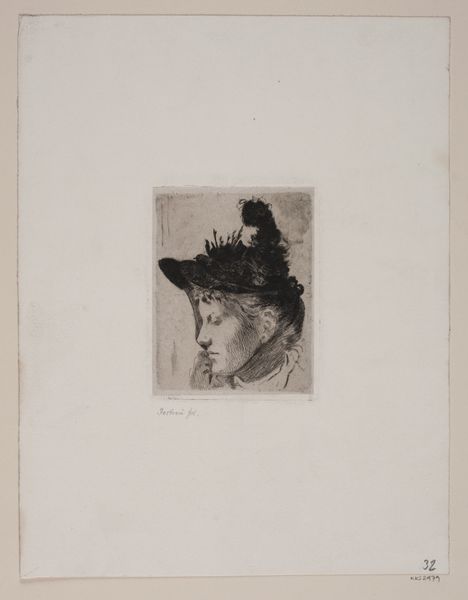
drawing, ink, pen
#
portrait
#
drawing
#
light pencil work
#
pencil sketch
#
figuration
#
personal sketchbook
#
ink
#
idea generation sketch
#
sketchwork
#
ink drawing experimentation
#
pen-ink sketch
#
sketchbook drawing
#
pen
#
sketchbook art
#
initial sketch
Dimensions: height 123 mm, width 82 mm
Copyright: Rijks Museum: Open Domain
Curator: This is a work called "Meisje met hoed op," or "Girl with a Hat," thought to be created around 1879 by Philip Zilcken. It's currently held at the Rijksmuseum. The piece is executed in pen and ink, showcasing the artist's skill in rendering fine details with such delicate media. Editor: My first impression is one of quiet introspection. The monochromatic palette and delicate lines create a sense of understated elegance. She seems lost in thought, almost melancholic. Curator: That's insightful. Zilcken, active during a period of significant social upheaval, offers us a glimpse into the feminine experience of the time. Her averted gaze and somewhat simple attire speak volumes about the constraints and expectations placed upon women, even within privileged classes. Consider, too, how the sketch might challenge assumptions about beauty or ideal representation. Editor: I see that, definitely. And the hat itself becomes quite a charged symbol, doesn’t it? It's almost like a protective helmet or a mask, offering her a degree of anonymity while also serving as a marker of social status. It conceals part of her, invites speculation. Curator: Exactly. We can delve deeper into the iconography of hats in 19th-century portraiture—what did particular styles convey about a woman's position or personality? How might Zilcken have been subverting those conventional signifiers through this specific rendering? Were particular styles related to emerging feminine identities? Editor: The looseness of the linework also stands out. It gives the drawing a raw, immediate feel, as though we're seeing a fleeting impression, a secret moment captured from life, which might serve as a counter-narrative to constructed female archetypes or norms that had to be carefully preserved at all costs. Curator: The drawing offers a critical look at both sides. We can read "Meisje met hoed op" as a comment on both self-expression and on self-imposed limitations. We need, as always, to be cognizant of power structures, whether institutional or cultural. Editor: Absolutely. I appreciate how this drawing prompts us to contemplate the complexities of female identity, then and now. Thanks for shining a light on the piece's layers, prompting me to consider some interesting dimensions!
Comments
No comments
Be the first to comment and join the conversation on the ultimate creative platform.
